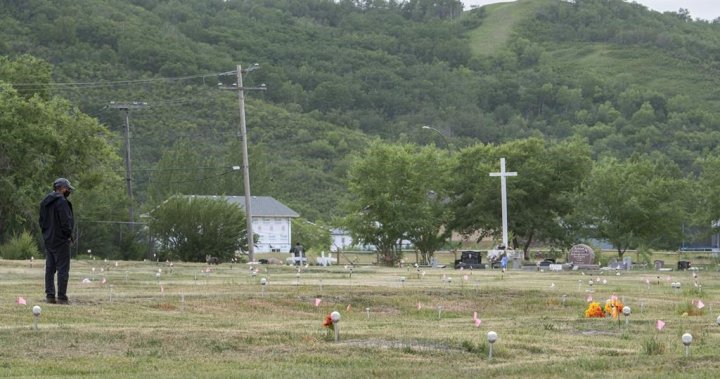
Canada sought help from international body in discovery of unmarked graves
Global News
The organization works in different countries to help identify people who have gone missing or been killed in major conflicts and disasters using DNA testing.
The Canadian government approached an international commission that helped identify the remains of those killed during 9/11 and the Lac-Megantic rail disaster to potentially aid its response to the discovery of unmarked graves at former residential schools.
A spokesperson for the International Commission on Missing Persons confirmed Monday that the federal government had approached it for support, but said it had no further information to provide and didn’t specify when the outreach happened.
Headquartered in The Hague, the organization works in different countries to help identify people who have gone missing or been killed in major conflicts and disasters using DNA testing. It also helps governments and institutions shape policies related to such issues.
Over the past year, First Nations across Western Canada have announced the presence of what are believed to be the unmarked graves of Indigenous children who died while forced to attend residential schools.
At least nine communities have reported discovering 1,685 such graves, according to government statistics provided in May.
Ottawa has committed to providing money and resources to the First Nations to investigate the discoveries.
The federal government also appointed Kimberly Murray, a member of the Kahnesatake Mohawk Nation in Quebec and a former executive director of the Truth and Reconciliation Commission, to serve as an independent special interlocutor.
Murray was tasked with recommending policy changes and identifying options to protect and preserve the sites.













